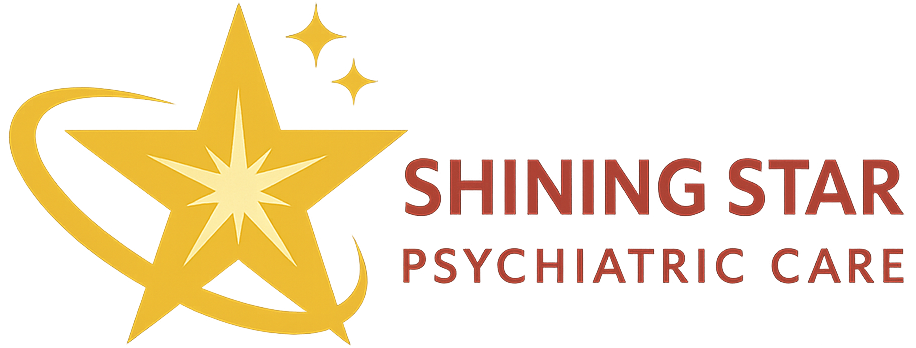
We offer personalized diagnosis and treatment for mood swings that disrupt life helping you find stability, regain balance, and lead a meaningful life again.
Mood swings that seem more than “ups and downs” can signal a serious condition. At Shining Star Psychiatric Care, we understand how sudden highs (mania or hypomania) or prolonged lows (depression) can feel overwhelming, unpredictable and out of control. Our evidence-based, compassionate care is designed to help you navigate these intense mood episodes and build a stable foundation for long-term wellness.

Bipolar Disorder is a chronic mental health condition marked by clear shifts in a person’s mood, energy and ability to function from elevated (manic or hypomanic) phases to depressive episodes.
There are different types and presentations of bipolar disorder, including:
– Bipolar I Disorder (at least one manic episode, with or without major depression)
– Bipolar II Disorder (hypomanic episodes plus major depressive episodes)
– Brief psychotic disorder
– Cyclothymic Disorder (milder mood swings over longer periods)
With timely treatment and support, many individuals live productive and meaningful lives despite this condition.
Symptoms vary by phase but often include features of both the high (mania/hypomania) and low (depression) states.
There is no single cause; bipolar disorder emerges from a complex interplay of biological, genetic, psychological and environmental factors:
– Genetic vulnerability: Having a close family member with bipolar disorder increases risk.
– Neurobiological and brain chemistry factors: Structural or functional brain differences, neurotransmitter imbalances may contribute.
– Environmental and life-event triggers: Major stressors, trauma, substance use or disrupted sleep patterns can play a role.
– Sleep and circadian rhythm disturbances: Sleep loss, irregular schedules or shift work may trigger or worsen mood episodes.
By understanding these factors, our team tailors treatment strategies that address both root and symptom.


Start your path to psychological wellness with our thuroughly selected specialists.